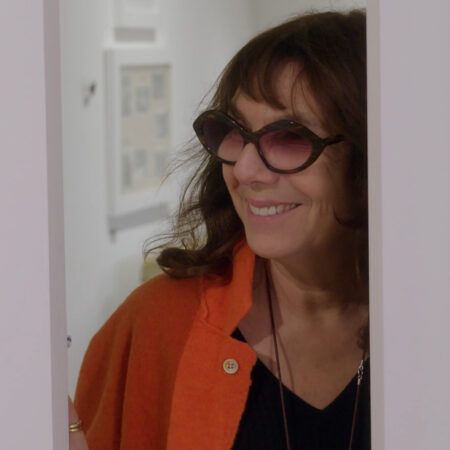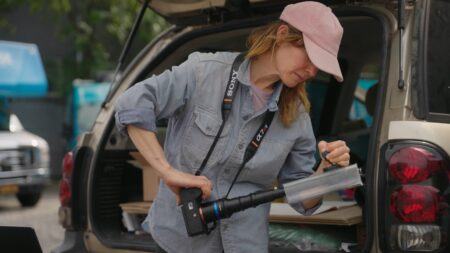Sophie Calle

Sophie Calle was born in 1953 in Paris, France, and lives and works in Malakoff, France. Working across photography, installation, text, performance, and video, Calle playfully explores themes central to the human experience, such as death, desire, love, and loss, often with the assistance of collaborators who may or may not know they are participating in the work. In her practice, Calle constructs specific conditions to create her works: inviting friends and strangers to sleep in her bed and be photographed, taking a cross-country road trip with a video camera, or only consuming monochromatic foods. Across this body of work and set of methods that defy neat categorization, the artist investigates the boundaries between the self and the other, realizes universal human truths, and collapses distinctions between art and life.
Working within self-imposed routines and rituals, Calle carves out a creative space that lets her explore the limits of what is socially acceptable to investigate the lives of others and reflect upon her own. In 1979, the artist was introduced to a stranger called Henri B., and decided to secretly follow him on a trip from Paris to Venice, resulting in Suite Venitienne (1979), a series of photographs accompanied by diaristic texts detailing her daily attempts to trail the stranger. “I have rituals, with rules of the game,” the artist says. For Calle, the daily ritual of following and photographing reveals as much about her as it does Henri, using the stranger as a foil for her explorations into curiosity, desire, and discovery. In other works, such as The Hotel (1981), Calle takes a job as a chambermaid for three weeks at a Venetian hotel and surreptitiously examines, records, and photographs the personal belongings and conversations of guests. Pairing photographic documents with written observation, the artist points to the assumptions and deductions we make based on small pieces of information, working between fact and fiction to demonstrate how much our understanding of others comes from assumption and extrapolation without ever truly knowing what goes on in the lives of others.
Calle also creates works that investigate her own experiences by drawing from critical moments in her emotional and psychological life. “Sometimes I am the center of the subject. Sometimes it’s about others,” says the artist. “It’s the idea that gives the method.” After receiving a break-up letter from a partner, the artist sourced replies to the letter from 107 women (and a parrot), which she collected and displayed in the installation Take Care of Yourself (2007). Provided by women working in disciplines from opera to dance to criminology, the total archive of responses serves as a meditation on love and loss sparked by Calle’s inability to respond to the letter she received. The subject of loss is a running theme throughout Calle’s work, from her film No Sex Last Night/Double Blind (1996), which begins with the symbolic burial of her friend Hervé Guibert, to numerous works about the death of her mother and father, and even works which preempt the artist’s own death. Mining her own life and the lives of others, Calle obliquely but movingly explores universal human experiences while simultaneously emphasizing the impossibility of truly knowing the other in works that are never fully truthful or fictional, autobiographical or anthropological, private or public.
“I don’t want to take the camera, I want to live the story. I want to be inside. When the story is more dramatic or when it’s about death, absence, then to record it is a way to take a distance.”
Sophie Calle

